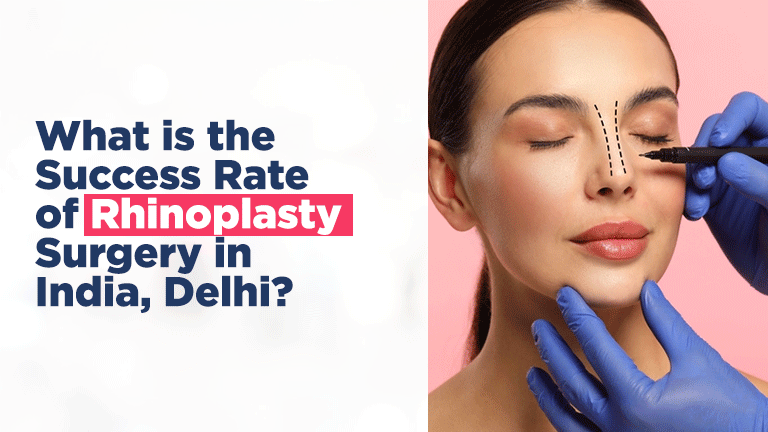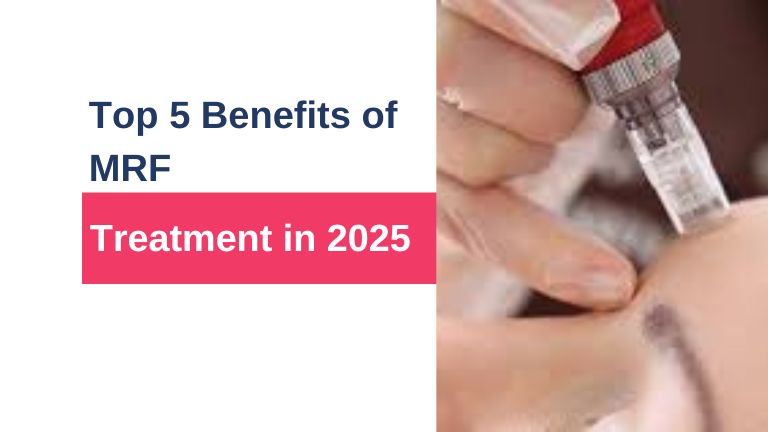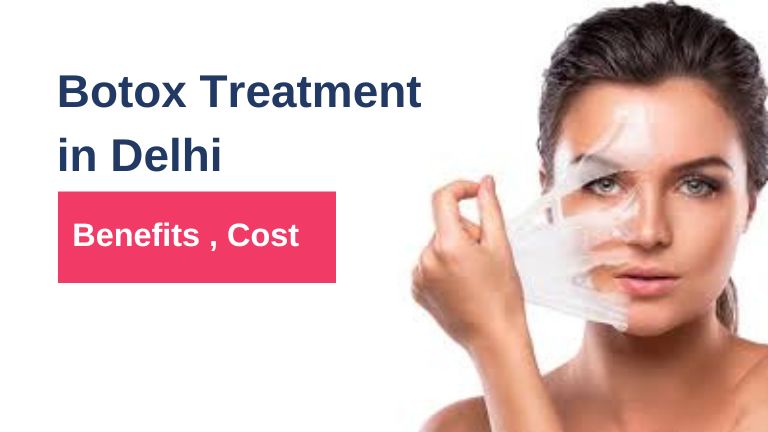
What is the Success Rate of Rhinoplasty Surgery in India, Delhi?
Rhinoplasty, commonly known as nose surgery, is a popular procedure

Dental and oral health care are critical components of general health and well-being. Poor oral cleanliness has been related to cardiovascular disease, cancer, and diabetes, as well as tooth cavities and gum disease.
It takes a lifetime to keep your teeth and gums healthy. The earlier you acquire basic oral hygiene practices like brushing, flossing, and minimizing sugar intake, the simpler it will be to avoid expensive dental operations and long-term health problems. Your mouth, like other parts of your body, is teeming with germs, most of which are harmless. However, because your mouth is the gateway to your digestive as well as respiratory systems, several of these bacteria could cause illness.
Bacteria are normally kept under control by the body’s natural defences and regular dental care, such as frequent brushing and flossing. Without an adequate Dental and oral health hygiene routine, bacteria can build up to the point where they cause oral infections including dental conditions.
Oral bacteria as well as the inflammation connected with an extreme condition of gingivitis (periodontitis) may play a role in several disorders, according to research. Furthermore, certain disorders, such as diabetes and HIV/AIDS, can reduce the body’s response to infection, rendering oral health issues worse.
The health of our teeth, gum, and the overall oral-facial system, which allows us to laugh, speak, and chew, is referred to as oral health. Cavities (tooth decay), dental problems (periodontal disease), and oral cancer are among the most common dental problems that affect our oral health.
As per a recent survey, it is estimated that more than 80% of the global population has suffered from at least one tooth-related problem before the age of 34. It is also estimated that 40% of people around the world have faced or are presently facing tooth ailments in recent years. In countries such as the United States of America, more than 124 billion dollars worth of dental care services are offered to the masses.
Oral issues are often assumed to be separate from many other chronic conditions, although they are connected directly. Poor dental hygiene has also been linked to other chronic diseases such as diabetes and high blood pressure. Poor oral hygiene has also been related to unhealthy practices such as smoking as well as consuming sugary foods and beverages.
In particular, community water fluoridation and school sealant programs are safe and efficacious therapies that have been proven to prevent cavities and can save money. Dental and oral health care is indeed a strong predictor of overall health, contentment, and life satisfaction. This overarching term covers dental caries, periodontal (gum) illnesses, loss of teeth, throat cancer, oro-dental disease, noma, and congenital anomalies such as cleft lip and palate.
Oral disorders affect about 3.5 billion people globally, according to the Global Burden of Disease Study 2019. Lip, as well as oral cavity cancers, are some of the top 20 most prevalent malignancies worldwide, as per the International Agency for Research on Cancer, with approximately 180 000 fatalities per year.
To prevent tooth gum problems, good dental hygiene is required. It entails practices such as washing your mouth twice a day and visiting theregularlylar basis.
Oral health care, on the other hand, is about much more than tooth decay and gum disease. There is a link between the healthiness of a person’s mouth and their general health, according to research. Oral hygiene issues, according to experts, are a global health concern.
Proper dental treatment, both at home and at the dentist’s office, can help people avoid these issues. The preceding are some of the most effective ways to keep your gums healthy.
How to fix tooth decay?
Frequent check-ups check -help detect cavities as well as other oral health care issues before they produce required symptoms or get even turned into more significant matters. The earlier you receive therapy, the higher your prospects of correcting and preventing dental decay in its early stages. If you cure before before it becomes painful, you won’t need a significant A cavity.
A cavity solution is determined by the seriousness of the cavity and the problem you are dealing with. There are several treatment options available, including:

Cavities are created by tooth decay, which is a gradual process. The following is how tooth decay occurs:
Destruction continues – Bacteria, as well as acid, continue to advance through your tooth as tooth decay symptoms progress, passing beside the interior tooth structure (pulp), which includes blood vessels and nerves. The bacteria cause the pulp to swell and become irritating. Since there is no room inside a molar for inflammation to spread, the nerve gets squeezed, causing pain. Uneasiness might even spread to the bone beyond the tooth root.

Once you look at the benefits of Dental and oral health Care, you will automatically follow these steps to prevent your tooth from dental issues and infections.
Each one of these actions plays a unique role in removing plaque from your mouth, and they all work together and do so. Flossing, for instance, is the sole way to eliminate plaque from your gum tissue, making it an important aspect of gum disease prevention.
All of this aids in the preservation of as many of your gums and teeth as feasible. If you have periodontal or have had it in the previous, you may want to see him more frequently for further regular cleaning and treatments. These additional cleanings can aid in the treatment of gum disease, the monitoring of the process of healing, and the prevention of periodontitis. You must look into both dental problems and treatment.
Getting treatment right away decreases the quantity of damage to your gums and teeth and safeguards you from having to endure more comprehensive procedures.
Even if you have a severe case of erosion or periodontal, dentistrseveralnumber of therapies are available to help you recover your oral hygiene. Deep cleanings behind the gum line, for instance, are required if you have periodontitis.
You could see how the teeth look in the mirror, but a lot is going on beneath your gums that you’re not aware of. Dentists could prevent issues as well as solve issues. They can detect the beginning of gum infections and oral decay, among other issues. When it pertains to your oral health, it’s critical to be cautious and see your dentist regularly so that any abnormalities may be caught early and treated before they can become a problem. When individuals have a problem, they frequently rely on the internet, which is full of valuable information as well as disinformation.
A dentist, on either hand, has spent years training to become qualified in the field and will give you sound advice. By attending your dentist frequently, you can establish a solid connection with them, allowing them to customize assistance and recommendations to your unique needs throughout time.
You can visit Clinic Eximus if you want your mouth to be treated properly. They offer treatment for such issues in the belief that these infections will return to you in the future. They provide treatments from skincare to hair care to dental care.
Clinic Eximus strives to provide high-quality hair, skin, dental, plastic surgery, and cosmetology treatments using cutting-edge technologies and a responsible approach while developing lifelong trusting connections.
While we grow up and age, our bodies change, and so as a result, our demands start changing as well. As we get older, we need to pay closer attention to certain areas of our medical care, and doing so sooner can help us avoid health afterwards afterwards. Exercising as well as eating a healthy diet, for illustration, can help to prevent high cholesterol and blood pressure, as well as the problems that come with them.
The same could be said for your Dental and oral health Care. Although your chance of developing certain health illnesses and oral infections increases as you get older, you can take action today to prevent these problems from ever becoming a problem later on by taking some action and developing good habits.
Investing in your dental health to prevent your teeth disease as you age is a wise decision. Fortunately, it’s a simple decision, as maintaining your long-term dental hygiene isn’t that dissimilar to safeguarding your short-term dental health.
To avoid these issues, practice basic oral hygiene instructions, which include brushing, flossing, and swishing your mouth with mouthwash; eat appropriately, and drink lots of fluids. Even if you take all of the precautions, if these oral problems persist, you should see your dentist as soon as possible.
Over the last few decades, the prevalence of the disease has risen dramatically. Excessive consumption of simple carbs and sugary beverages is one of the causes of tooth problems. Caries in the mouth can cause teeth to fall out prematurely.
Furthermore, dental treatment is not inexpensive. As a result, practitioners, such as nurses and pharmacists, must inform patients about the negative effects of glucose on the mouth. Brushing and flossing alone are insufficient to avoid dental cavities; one must also maintain healthy teeth.

Rhinoplasty, commonly known as nose surgery, is a popular procedure

As we age, our skin undergoes various changes. It may

Microneedling radiofrequency (MNRF or MRF) treatment is rapidly gaining popularity

Are you looking for a revolutionary solution to address hair

Struggling with hair thinning or loss? At Skinfinity Derma, we

Looking for a smooth, youthful appearance? Clinic Eximus offers the